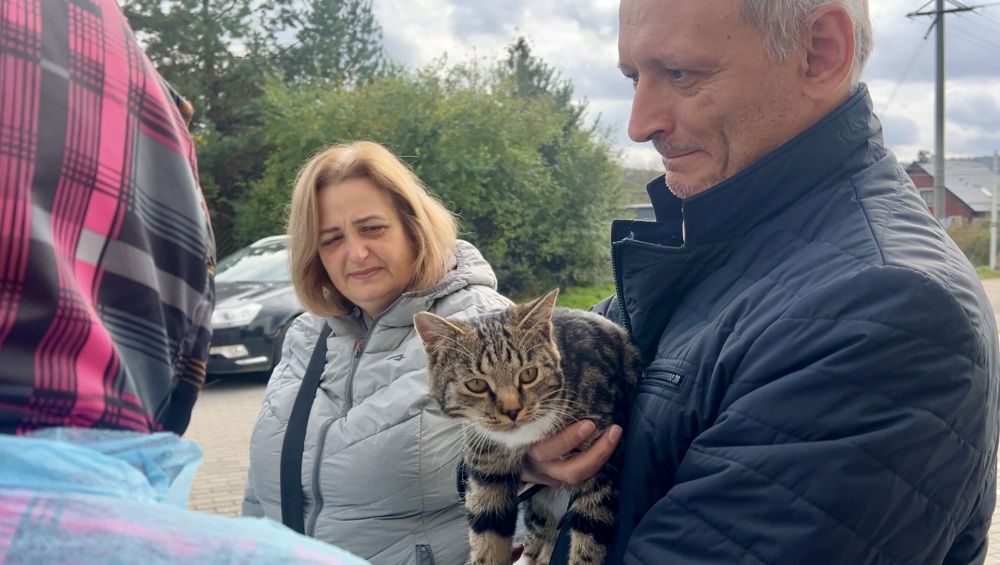A rabies vaccination campaign was held in Lysynychi, Lviv city territorial community. In two hours, veterinarians vaccinated 12 dogs and 17 cats. Subsequently, similar events will be held in other annexed settlements.
Local resident Lesia Vashchuk brought her cat for free vaccination. Tigrus is only six months old and this is the first time he has been injected with the vaccine.
“It’s imperative to vaccinate, because foxes run like dogs in the village, and it’s dangerous for us as well,” says the cat’s owner.
Natalia Ptashnyk vaccinates her 3-year-old German shepherd, Naida. Previously, the dog was vaccinated in private veterinary hospitals, but this is the first time she is getting vaccinated for free in Lysynychi.
“We love animals and we need to take care of them because they are just like us. Naida has a dog passport. 10 days ago, we gave her a worming pill and planned to vaccinate her, but we saw that today we can vaccinate animals here, so we brought her here. It is very good that the campaign is held here, because we have a large village and there are people who find it difficult to take their animals to the city to see a vet. And for those who live here and can come, it’s very good, I approve of it,” Natalia said.
Veterinarians say that not everyone is willing to let veterinarians into their yards now, so such campaigns are more effective.
“We want to promote rabies vaccination and vaccinate animals throughout the Lviv community, but it is very difficult to convince people of the need for vaccination. When the animal gets sick, people remember that they should have done it earlier.
Since the beginning of the war, hunting has been banned, so foxes come into the city. They run around Stryi Park, Lychakiv Cemetery, Pohulianka and can spread rabies. It is important to understand that rabies cannot be treated in animals or humans. These are fatal cases. Rabies is transmitted by saliva through a damaged skin surface, i.e. by a bite, or if you scratch your hand and saliva gets there, rabies can already be introduced,” said Mykhailo Pukivsky, head of the Lviv City State Veterinary Hospital.
According to Iryna Kruglova, head of the Department of Administration and Community Development at Lviv City Council, the campaign was initiated by the city’s environmental department. It is the first and experimental one in Lysynychi, but now they plan to vaccinate animals in other settlements of the community.
“We started the campaign in Lysynychi because we received the most complaints to the hotline from local residents. There are cluttered areas and many places where foxes live. So we started with this village, because, according to the residents, it is the most dangerous. As you can see, attendance is quite high. Therefore, our next step is to carry out such vaccination in Pidbirtsi, Rudne and Bryukhovychi, where foxes already live within the settlement.
We need to reach out to the consciousness of citizens that we have to take care not only of pets but also of wild animals. Because the fox is one of the main spreaders of rabies. It’s normal for wild animals to be around us. We just need to protect ourselves and do everything we can to live peacefully with these animals,” said Iryna Kruglova.
In total, more than a dozen local residents came to vaccinate their animals against rabies in Lysynychi in two hours. The vaccine was given to 12 dogs and 17 cats.
“This action is a continuation of the vaccination of wild carnivores in the community to consolidate the result and increase safety for residents. The city is currently developing options for various locations within the communities where residents can bring their pets for vaccination. So we urge you to take care of your safety and your pets, follow the announcements of the campaign and bring your animals for vaccination,” said Vladyslav Ivanov, Head of the Housing Department of Lviv City Council.

